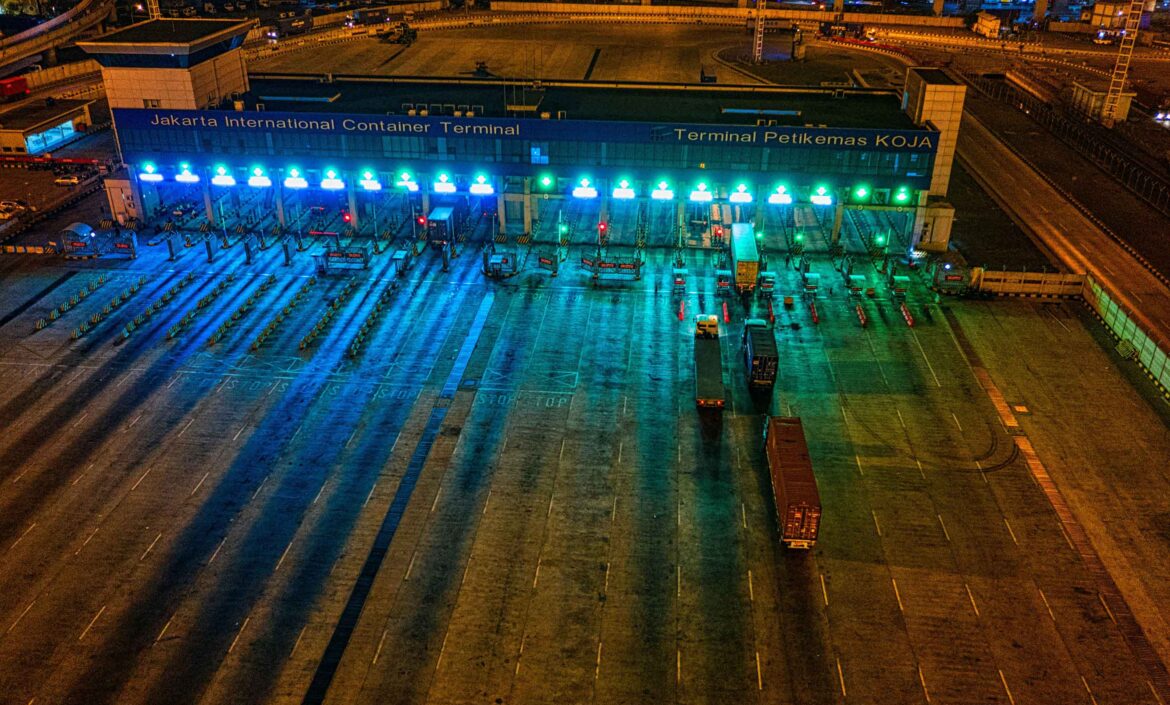 22Oct
22OctThe Future of Shipment Tracking: AI and Predictive Analytics
In the fast-paced world of logistics and transportation, efficient shipment tracking is more critical than ever. With supply chains becoming increasingly global and complex, businesses need smarter solutions to keep deliveries on time, reduce costs, and ensure customer satisfaction. This is where Artificial Intelligence (AI) and Predictive Analytics are stepping in, revolutionising shipment tracking by offering real-time insights, predicting potential delays, and optimising delivery routes.
In this blog, we’ll explore how AI and predictive analytics are shaping the future of shipment tracking and why these tools are becoming indispensable for modern logistics.
The Role of AI in Shipment Tracking
Artificial Intelligence is transforming the logistics industry by enabling systems to analyse vast amounts of data and make decisions faster than any human could. In shipment tracking, AI enhances the ability to monitor goods in real time, forecast potential disruptions, and make route adjustments on the fly.
Real-Time Monitoring
AI-powered systems provide real-time visibility into shipments, tracking everything from location and temperature to handling conditions. This real-time data enables businesses to maintain control over their supply chains, ensuring that shipments are on track and allowing immediate responses to unforeseen issues.
Smart Data Analysis
AI systems analyse data collected from multiple sources such as GPS devices, weather forecasts, traffic patterns, and historical trends. By processing this data, AI can offer insights that help businesses predict potential delays or disruptions and take proactive measures to avoid them.
Automated Decision-Making
One of the greatest advantages of AI in shipment tracking is its ability to make decisions autonomously. If a shipment is running late due to traffic or weather conditions, AI-powered systems can automatically reroute it to the most efficient path. This reduces delays, saves costs, and enhances overall operational efficiency.
How Predictive Analytics Is Changing Logistics
Predictive Analytics is a game-changer, allowing companies to move beyond reacting to shipment issues to anticipating them before they arise. This technology leverages historical data, real-time inputs, and machine learning algorithms to forecast possible disruptions and suggest ways to prevent them.
Predicting Delays
By analysing patterns from past shipments, current traffic data, and environmental factors, predictive analytics identifies potential causes of delay before they become a problem. This allows logistics companies to act in advance, rerouting shipments to avoid known bottlenecks and keeping deliveries on schedule.
Optimising Routes
Predictive analytics takes route planning to the next level. With the ability to analyse not just historical trends but also current road conditions, weather forecasts, and real-time data, it ensures trucks are taking the most efficient routes possible. This leads to faster deliveries, reduced fuel consumption, and cost savings for companies.
Improving Cold Chain Logistics
For sectors such as pharmaceuticals or food delivery, maintaining precise temperature controls during shipment is critical. AI-powered analytics provide real-time monitoring of cold chain conditions and can anticipate changes that might threaten the integrity of perishable goods. This proactive monitoring helps prevent spoilage, ensures compliance with safety standards, and improves overall operational efficiency.
The Benefits of AI and Predictive Analytics in Shipment Tracking
By integrating AI and predictive analytics into shipment tracking, companies can significantly improve their logistics operations. Here are some key benefits:
Increased Efficiency
AI and predictive analytics work together to optimise routes, anticipate delays, and reduce idle time, ultimately speeding up delivery times and boosting efficiency. This not only improves customer satisfaction but also cuts operational costs.
Reduced Risk of Delays
Predictive analytics can foresee disruptions long before they affect shipments, enabling businesses to act proactively. Whether it’s rerouting a truck to avoid heavy traffic or adjusting schedules to avoid bad weather, companies can mitigate risks and keep deliveries on schedule.
Enhanced Customer Satisfaction
Customers today expect real-time visibility into their shipments. AI-powered systems allow businesses to provide up-to-the-minute updates on shipment status, ensuring customers are always in the loop. Additionally, fewer delays and more reliable deliveries mean happier customers.
Sustainability
Optimising routes and reducing delivery times means lower fuel consumption and a smaller carbon footprint. AI and predictive analytics help companies run more eco-friendly operations by minimising unnecessary journeys and maximising efficiency.
The Future of AI and Predictive Analytics in Shipment Tracking
As AI and predictive analytics continue to evolve, their impact on shipment tracking will only grow. We expect to see further integration of these technologies into every aspect of logistics, from warehousing to last-mile delivery. Autonomous vehicles, drones, and even blockchain technology are already being tested alongside AI systems to create more secure, efficient, and transparent supply chains.
Conclusion
The future of shipment tracking lies in AI and Predictive Analytics. These powerful tools enable businesses to move from reactive logistics to proactive strategies, reducing delays, optimising routes, and improving customer satisfaction. It is the future of logistics management.






